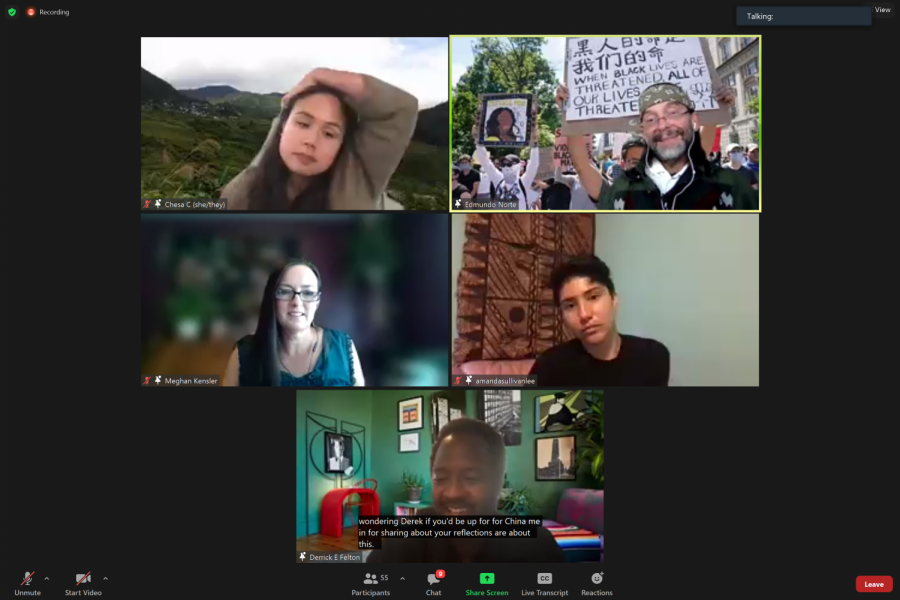Comparative Ethnic Studies panel series concludes with its fifth weekly meeting
Panelists from De Anza’s “Our Histories, Our Experiences, Our Lives: From Learning to Collective Action – Comparative Ethnic Studies: Building Multiracial Alliances” panel event.
Panelists explored how attendees could put what they learned about structural racism into action on May 30, concluding the five-week-long panel series “Our Histories, Our Experiences, Our Lives: From Learning to Collective Action.”
While the previous four panels focused on a specific area of ethnic studies in the De Anza College Intercultural and International Studies Division, this panel allowed speakers to reflect on all past sessions.
“Part of the core of today’s time together will be our panelists naming the impact of having been able to sit together in a circle,” said Edmundo Norte, dean of the Intercultural and International Studies Division. “To hear from each other and hear our stories.”
Panelist Francesca Caparas, who works in the Office of Equity and teaches ethnic studies classes, said that an ethnic studies education helps students examine structural racism.
“Getting into ethnic studies helped provide that analytical framework,” Caparas said. “As much as it’s painful on a personal level, how do we take that personally and recognize that it’s institutional, that it’s systemic?”
After the last four panels, Caparas said she decided to commit to hearing more personal stories about racism and then working with marginalized people to create a “shared analysis.”
Student panelist Nicholas Pope said that the ethnic studies community gave him tools to deal with racist interactions.
“Being a part of the ethnic studies, more particularly the non-violent communication, opened up the door to a new way of understanding,” Pope said. “That means so much just because, for me personally and people that look like me, these types of tools and spaces aren’t really available.”
Attendee Janice Valadez, an instructor in De Anza’s nursing department, wrote in the chat that she would commit to respecting and recognizing her own community along with those outside it.
“Discrimination is everywhere even within our own space or community that we belong to,” Valadez wrote. “Therefore, peace and harmony can be achieved if we respect, acknowledge and see our differences.”
You can find all the recordings of the panels here.



